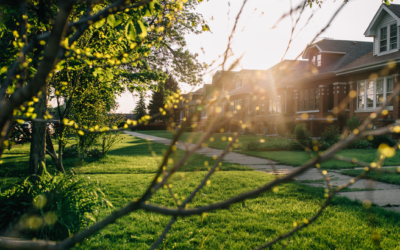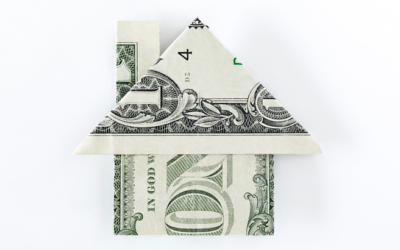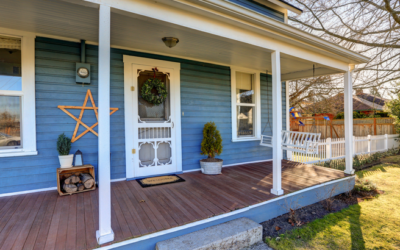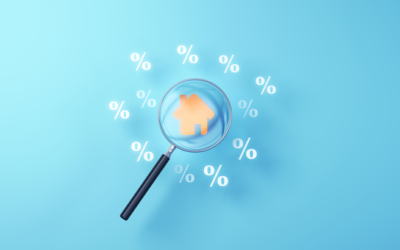There’s More to a Bubble Than Rising Home Prices

What truly causes a housing bubble and the inevitable crash? For the best explanation, let’s go to a person who correctly called the last housing bubble – a year before it happened.
“A bubble requires both overvaluation based on fundamentals and speculation. It is natural to focus on an asset’s fundamental value, but the real key for detecting a bubble is speculation…Speculation tends to chase appreciating assets, and then speculation begets more speculation, until finally, for some reason that will become obvious to all in hindsight, the ‘bubble’ bursts.
I have taken to calling the housing market a ‘bubble’.”
– Bill McBride of Calculated Risk calling the bubble back in April 2005
Where do we stand today regarding speculation?
There are two measurements that are used to determine the speculation in a housing market:
1. The number of homes purchased by an investor and
2. The number of homes being flipped (resold within a twelve-month period)
As compared to 2005, investor purchases are down dramatically (from 23% to 13%) and so is flipping (from 8.2% to 5.7%). McBride explains:
“There is currently some flipping activity, but this is more the normal type of flipping (buy, improve and then sell). Back in 2005, people were just buying homes and letting them sit vacant – and then selling without significant improvements. Classic speculation.”
What are the experts saying about speculation in today’s market?
DSNews recently ran an article which asked two economists to compare the speculation in today’s market to that in 2005-2007. Here is what they said:
Dr. Eddie Seiler, Chief Housing Economist at Summit Consulting:
“The speculative ‘flipping mania’ of 2006 is absent from most metro areas.”
Tian Liu, Chief Economist of Genworth Mortgage Insurance:
“The nature of housing demand is different as well, with more potential homeowners and far fewer speculators in the housing market compared to the 2005-2007 period.”
And what does McBride, who called the last housing bubble, think about today’s real estate market?
Sixty days ago, he explained:
“In 2005, people were just buying homes and letting them sit vacant – and then selling without significant improvements. Classic speculation. And even more dangerous during the bubble was the excessive use of leverage (all those poor-quality loans). Currently lending standards are decent, and loan quality is excellent…
I wouldn’t call house prices a bubble – and I don’t expect house prices to decline nationally like during the bust.”
Bottom Line
Speculation is a major element of the housing bubble formula. Right now, there are not elevated percentages of investors and house flippers. Therefore, there is not an elevated rate of speculation.
To view original article, please visit Keeping Current Matters.
Boomers Moving Will Be More Like a Gentle Tide Than a Tsunami
While not all baby boomers are looking to sell their homes and move – the ones who do won’t all do it at the same time.
The Best Week To List Your House Is Almost Here
The third week of April brings the best combination of housing market factors for sellers.
Is It Easier to Find a Home to Buy Now?
To help you explore the growing list of choices you have now, team up with a local real estate agent you trust.
What Every Homebuyer Should Know About Closing Costs
Your closing costs are the additional fees and payments you have to make at closing.
What Are Experts Saying About the Spring Housing Market?
If you’re planning to move soon, you might be wondering where prices and mortgage rates are headed, and how to navigate today’s market.
4 Tips To Make Your Strongest Offer on a Home
Your agent is your partner in navigating details. Trust them to lead you through negotiations and help you figure out your best plan.
Why Today’s Seller’s Market Is Good for Your Bottom Line
The market is still working in favor of sellers. If you house is ready and priced competitively, it should get a lot of attention.
What Mortgage Rate Do You Need To Move?
While mortgage rates are nearly impossible to forecast, the optimism from the experts should give you insight into what’s ahead.
Finding Your Perfect Home in a Fixer Upper
Your agent can also offer advice on which upgrades and renovations will set you up to get the greatest return on your investment.
The Benefits of Downsizing When You Retire
When you downsize your house, you often end up downsizing the bills that come with it, like energy costs, and maintenance requirements.









